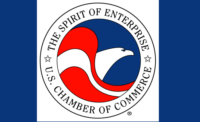U.S. no longer leads in tobacco wars

 An anti-smoking advocacy group says the United States – whose regulations once set the global standard for tobacco control best practices – is falling behind when it comes to protecting its citizens from the harms of tobacco.
An anti-smoking advocacy group says the United States – whose regulations once set the global standard for tobacco control best practices – is falling behind when it comes to protecting its citizens from the harms of tobacco.
Action on Smoking & Health (ASH), an organization devoted to the fight against the domestic and global tobacco epidemic, released a report entitled The WHO Framework Convention on Tobacco Control (FCTC): An Implementation Guide for U.S. State and Local Officials. The report applies international and domestic examples of best practice measures to reduce tobacco consumption, derived from the WHO FCTC, to U.S. state and local laws.
The FCTC) is the first global treaty on public health. It establishes up specific steps for governments to address the tobacco epidemic, including:
- Tax and price measures;
- Bans or restrictions on tobacco advertising, promotion and sponsorship;
- Smoke-free work and public spaces;
- Prominent health warnings on tobacco packages; and
- Limits to tobacco industry interference in public health policy.
“When the FCTC was originally negotiated, many experts used American regulations and legislation as examples of tobacco control best practices; this is no longer the case,” according to a statement released by the group. “New global champion nations have surpassed the public health protections provided to American citizens. To date, the U.S. has signed but not yet ratified the treaty and is not a party to the FCTC. However, the FCTC has had immensely positive effects in countries that have ratified and implemented it, and the FCTC provides examples that federal, state, and local governments can adopt in order to further protect the health of the U.S. population.”
“National ratification of the FCTC is not a prerequisite for states and localities to take countless steps forward. Many crucial tobacco control advances have started at the local level, and this report intends to help localities continue that progress,” said ASH Executive Director Laurent Huber.
Examples from international implementation of the FCTC and best practices from U.S. states include:
- The positive effects of a tax increase in South Africa;
- A historic ban on tobacco corporate social responsibility in Mauritius;
- A successful tobacco control education campaign in California; and
- An effective tobacco grower’s buyout plan in Maryland.
Among the many other examples included in the ASH Implementation Guide and in the online database are examples of model legislation and cases from New York City, which, under the leadership of Mayor Bloomberg, has become a U.S. leader on tobacco control. Other key U.S. cities are highlighted as well.
According to Dr. Alfred Munzer, Chairman of the Board of ASH, “In the past, the United States has been a leader in tobacco control. Now, it is time for American states and localities to look to international examples, like those included in the ASH FCTC Implementation Guide, for their next steps in the fight against tobacco.”
The ASH has launched an online database to house sample tobacco control legislation and resources. The Implementation Guide is intended to help U.S. states and localities implement tobacco control measures that are proven to protect the health of constituents in other jurisdictions.
Action On Smoking And Health
Action on Smoking and Health (ASH) is the nation’s oldest anti-tobacco organization dedicated to health for all. ASH was formed in 1967 in response to the U.S. Surgeon General Report in order to use legal action to fight tobacco and protect nonsmokers. Today, because tobacco is the leading cause of preventable death worldwide, ASH uses global tools to counter the global tobacco epidemic. Learn more about our programs at www.ash.org.
Looking for a reprint of this article?
From high-res PDFs to custom plaques, order your copy today!





